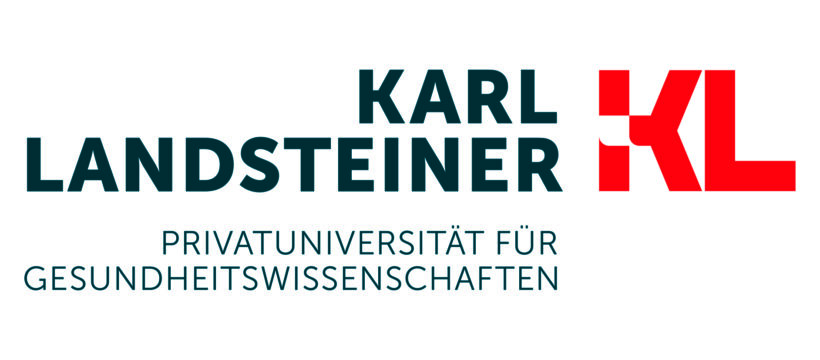Krems (Austria), 17. May , 2023: The situation of people who care for those in need of care at home is influenced by many factors – a team from the University of Vienna and the Karl Landsteiner University of Health Sciences has now identified which of these have a particular impact on the personally perceived caregiver stress. Five factors were found to have an especially strong influence on the subjective burden of caregiving relatives. Of these, the health status of the caregivers has the greatest impact. The study, which has now been published internationally, provides a basis for targeted relief for caregivers in the home setting for social and health policy measures.
Home care by family members is the most common form of care. In Austria alone, 70% of all people in need of care are cared for by family members or informal networks. It is widely known that the care situation can also be stressful for caregivers. Less well known, however, are the risk factors that most influence this burden and should therefore be given special consideration in the context of health policy. Exactly such factors have now been sought – and found – in an internationally published study by a team from the Karl Landsteiner University of Health Sciences (KL Krems) and the Institutes of Nursing Science and Sociology at the University of Vienna.
Big Five
„Our study is based on the representative data of 2,352 adult caregivers in Austria,“ explains Prof. Hanna Mayer of the Division Nursing Science at KL Krems and one of the study authors. „By means of statistical analyses, we were able to identify 45 factors from these data with an influence on the stress and strain of caregivers. Further statistical analysis showed that five of these are particularly influential – our so-called Big Five.“
These Big Five – those factors with the greatest influence on caregivers‘ subjective stress – were 1) caregivers‘ health status, 2) care recipients‘ behavioral problems, 3) a high frequency of direct care interventions, 4) the time intensity of care, and 5) a higher care dependency of care recipients.
Downward Spiral
Among these five most influential factors, the health status of informal caregivers stands out. On the one hand, because its influence was the strongest, but on the other hand also because of another special feature, as Ana Cartaxo, research associate in the Division Nursing Science at KL Krems and first author of the study, explains: „In fact, the caregivers‘ health status is influenced precisely by the subjective burden in connection with their own role as caregiving relatives. So we’re dealing with a negative feedback system here: a poor caregiver´s health status leads to more self-perceived caregiving-related burden, more burden further worsens the health of caregivers, which then increases the burden…..and so on down the downward spiral.“
The study authors differentiate among the factors between those that result from the circumstances of the care situation and those that arise directly from caregiving activities themselves. In this context, the state of health (at the beginning of care) together with the dependence on care of care-receivers are among the factors that are due to the circumstances, whereas the time and care intensity as well as the behavior of the person in need of care result directly from the care itself. This differentiation is important insofar as it offers different starting points for social and/or health policy measures that could serve to relieve the burden on caregivers. And these are urgently needed against the background of aging populations. Together with the University of Vienna, KL Krems is now contributing with high health policy relevance to mastering this challenge with this study.
Original publication: Risk Factors with the Greatest Impact on Caregiver Burden in Informal Homecare Settings in Austria: A Quantitative Secondary Data Analysis. A. Cartaxo, M. Koller, H. Mayer, F. Kolland & M. Nagl-Cupal. Health & Social Care in the Community Volume 2023, Article ID 3270083, 14 pages https://doi.org/10.1155/2023/3270083
About Karl Landsteiner University of Health Sciences (2023)
At Karl Landsteiner University of Health Sciences (KL) in Krems, the comprehensive approach to health and disease is a fundamental objective for research and teaching. With its Europe-wide recognized bachelor-master system, KL is a flexible educational institution that is tailored to the needs of students, the requirements of the labor market as well as the scientific challenges. Currently KL hosts about 600 students in the fields of medicine and psychology. The three university hospitals in Krems, St. Poelten and Tulln ensure clinical teaching and research at the highest quality level. In research, KL focuses on interdisciplinary fields with high relevance to health policy – including medical technology, molecular oncology, mental health and neuroscience, as well as water quality and related health aspects. KL was founded in 2013 and accredited by the Austrian Agency for Quality Assurance and Accreditation (AQ Austria). www.kl.ac.at/en
| Scientific Contact Prof. Hanna Mayer Karl Landsteiner University of Health Sciences Dept. for General Health Studies Dr.-Karl-Dorrek-Straße 30 3500 Krems / Austria T: +43 2732 72090 630 M: +43 664 6194685 |
| Karl Landsteiner University of Health Sciences Eva-Maria Gruber Communications, PR & Marketing Dr.-Karl-Dorrek-Straße 30 3500 Krems / Austria T +43 2732 72090 231 M +43 664 5056211 |
| Copy Editing & Distribution PR&D – Public Relations for Research & Education Dr. Barbara Bauder Kollersteig 68 3400 Klosterneuburg / Austria M +43 664 1576 350 E bauder@prd.at |

